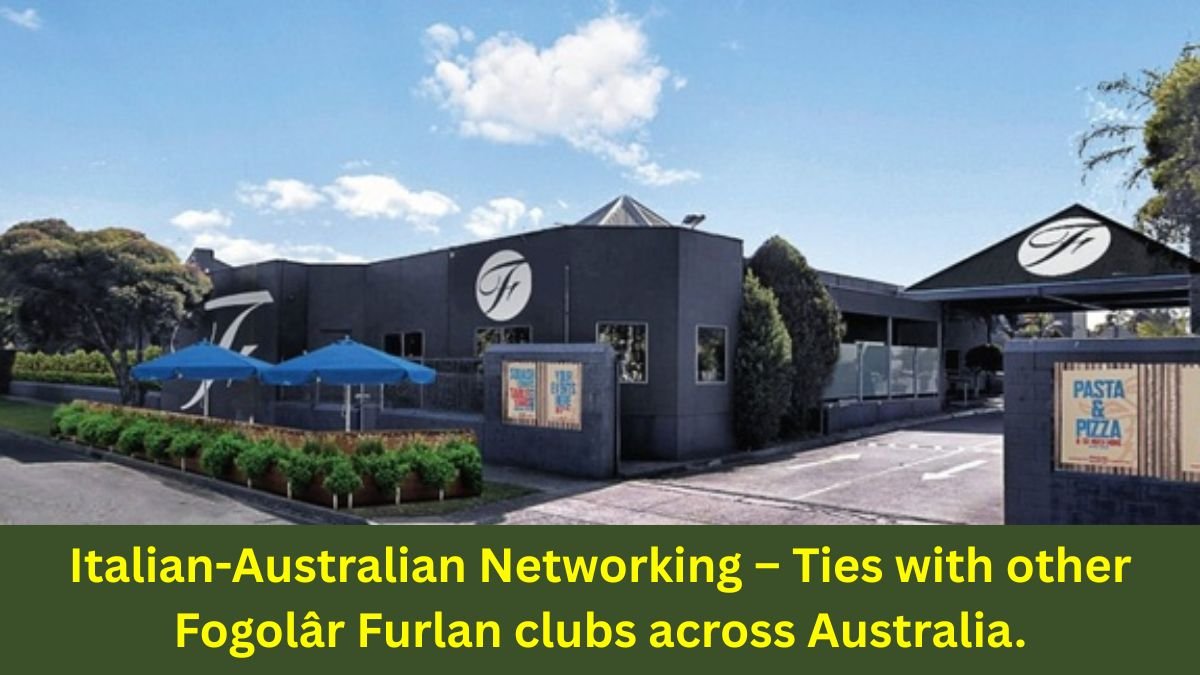Speaking of immigrant communities on the global scale, there is one fact that is very essential, a connection to the heritage. This sentiment is very common in the Italian community that lives in Australia and particularly in Friuli Venezia Giulia region. These are the people who started such clubs as Fogol in order to preserve the culture, traditions and the language like Fogol Furlan.
Fogolâr Furlan – It’s in the name
“Fogolâr” means hearth or bonfire, and “Furlan” means a person from the Friul region. The name symbolizes not just a club, but a feeling—a place where people come together, eat food, share stories and remember their roots.
Fogolâr Furlan clubs were established in the mid-20th century, when a large number of people from Italy began to settle in Australia. They brought with them their traditions, cuisine, music and language. But they formed communities to ensure that these were not lost in the new country.
A strong network across Australia
There are Fogolar Furlan clubs in almost every major city in Australia — Melbourne, Sydney, Perth, Adelaide and Brisbane. These clubs are not just places to socialise, but have become centres for the preservation of cultural heritage.
Contact and networking between these clubs play a vital role. Information about the activities of one club spreads to another, and often cultural events, sporting competitions, fundraising events, and even family reunions are organised together.
The importance of networking – moving forward together
Networking is not just limited to the business world today. Networking in migrant communities promotes collaboration and partnership.
Some of the key benefits of networking between Fogolar Furlan clubs are:
Preservation and promotion of culture
When clubs are connected, they can share their cultural events more effectively. The “Frico Festival” held in Melbourne can be replicated by clubs in Sydney or Brisbane.
Engaging youth
Inter-club youth conferences and language workshops are organised to connect the new generation to their heritage. This ensures that the next generation stays connected to Friul traditions.
Future plans and shared projects
Clubs organise joint events together – such as annual cultural conferences, folk music workshops or Italian language classes.
Aid and support in times of crisis
For example, when a club faces a financial crisis or a club building needs repairs, support from other clubs can be obtained.
Networking is even easier in the digital age
In today’s time when social media and digital technology have become part of our lives, Fogolar Furlan clubs are also making full use of it. Through WhatsApp groups, Facebook pages, Instagram live events, and Zoom meetings, communication between clubs has become easier and quicker than ever before.
Through online platforms, they exchange ideas, live stream events, and plan new projects together.
Fogolar Furlan – A Symbol of Emotional Connection
Events at these clubs are not just about enjoying food or music, but also about emotional connection.
When a club member moves to another city, he is welcomed like family at the Fogolar Club there.
It is a network that transcends boundaries and makes you feel connected. It strengthens the bonds of relationships and shows that no matter where you are in the world, you never lose touch with your culture.
The Role of Women and Elders
The role of women and elders in the success of Fogolar Furlan clubs cannot be denied. These clubs provide platforms where women teach traditional recipes, elders share their life stories and the younger generation learns from them.
This builds understanding and bridges generations.
Challenges, but solutions
There are challenges, though – keeping the younger generation interested, raising funds, and maintaining their identity in a changing social environment. But when clubs come together to tackle these challenges, solutions emerge.
The Fogolar clubs in Melbourne and Sydney have come together to create a youth platform that spreads the Italian language, Friul tradition and cultural stories through social media.
Future direction – more collaboration, more engagement
The network of Fogolar Furlan clubs is expected to grow even stronger in the future. Shared educational programs, documentary productions, Friul language classes, and interstate festivals will make these clubs even more vibrant.
These clubs are also now being recognised by the Australian Government and local councils, leading to grants and facilities.
Conclusion
The Fogollar Furlan clubs are not just organisations – they are the heartbeat of a people, a bridge that connects the past with the present.
This example of Italian-Australian networking shows that when people do not forget their roots, their identity can flourish even in new lands. The sense of belonging, cooperation and camaraderie of these clubs in Australia shows that culture is a key element of the culture.
